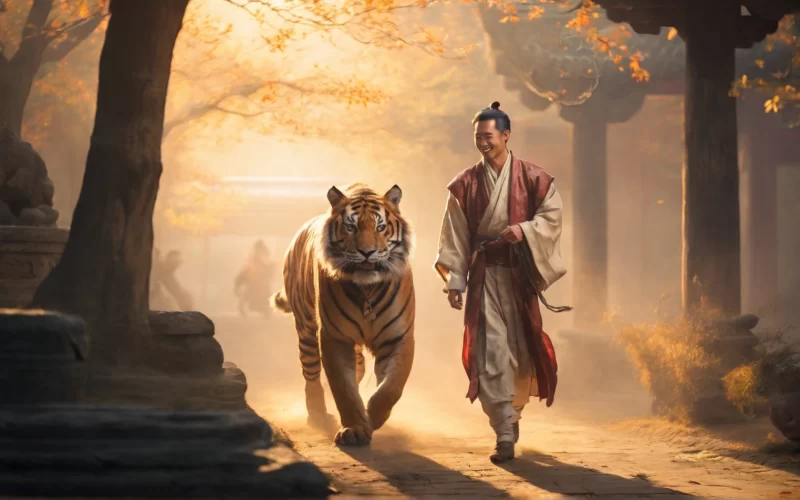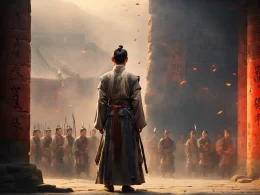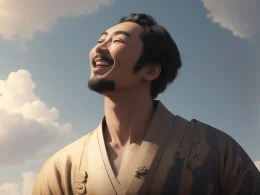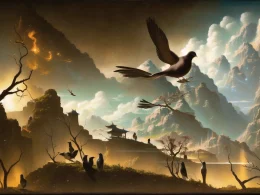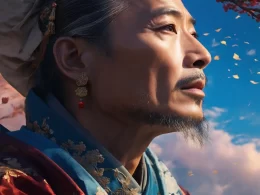Idiom Explanation:
The two places are far apart, even if the horses and cattle are lost, they will not run into each other's territory. According to another saying, the male and female of beasts are called "wind", but horses and cows are different from each other, so they will not be attracted to each other. The metaphor is that things have nothing to do with each other.
Pronunciation:
风马牛不相及
fēng mǎ niú bú xiàng jí
Origin:
《左传·僖公四年》:“君处北海,寡人处南海,风马牛不相及也,不虞君之涉吾地也,何故?”
Story:
In the early Spring and Autumn period, Duke Huan of Qi appointed Guan Zhong as his minister and carried out reforms vigorously, making Qi a powerful vassal state in the early Spring and Autumn period. Under the banner of "honoring the king and expelling the barbarians" and supporting the son of Zhou, Duke Huan of Qi became the first hegemon of the "Five Hegemons of Spring and Autumn Period" and was so powerful that no lord in the Central Plains did not submit to him. However, the power of Chu in the south was increasing, and King Cheng of Chu not only disobeyed Duke Huan of Qi, but also fought against him.
In 656 BC, Duke Huan of Qi wanted to show his prestige, so he led the armies of eight vassal states, including Qi, Lu, Song and Chen, to attack Cai. The Marquis of Cai had to flee to Chu in the night and asked for Chu's assistance. When the Duke of Qi Huan saw that the Marquis of Cai had fled to Chu, he led his army to Chu and marched straight ahead.
King Cheng of Chu sent an envoy to the army camp of Qi and said to the Duke of Qi, "You are in the North Sea, and I am in the South Sea, but the wind and the ox are not the same. I am not sure why you are involved in my land, why?" This means that you live in the North Sea and I live in the South Sea, so far apart that even if a horse and an ox were lost, they would not run into each other's territory. But why did you come to my land?
Guan Zhong immediately replied for Duke Huan of Qi, "Once upon a time, Duke Zhaokang (the highest minister of the Zhou Dynasty) instructed our predecessor, Jiang Tai Gong (i.e. Jiang Zi Ya), that you could crush all the five lords and nine boars to assist the Zhou Dynasty, and rewarded my predecessor's territory: east to the sea, west to the Yellow River, south to Muling, and north to Wu Di. We shall ask you for the special products of Chu, which you have not paid to the Son of Zhou for a long time; and furthermore, we shall ask you for the crime of King Zhao of Zhou, who was drowned in the Han River when he toured the south." The ambassador of Chu said, "It is indeed our negligence not to pay tribute to the special products. As for the drowning of King Zhaoge of Zhou, Chu cannot be responsible for it. If you want to ask for guilt, please ask yourself at the Han water!"
For a moment, Guan Zhong was speechless. When Duke Huan of Qi saw that Chu would not submit to him, he then sent a large army to Zhaoling. Chu, in front of the powerful allied army, had to send a great official to ask for peace. The Duke of Qi learned that Chu had already prepared for this and if he used force to crush Chu, he would lose both sides, so he made peace with Chu. Later, the saying "the wind, the horse, and the ox are not alike" by the ambassador of Chu was translated into an idiom.
Similar Idioms:
- 驴唇不对马嘴







